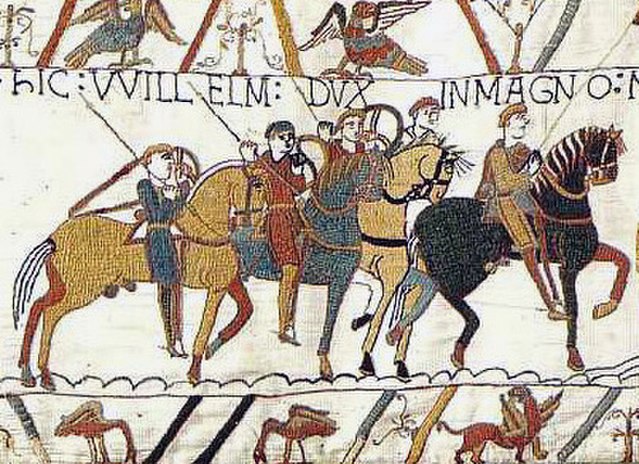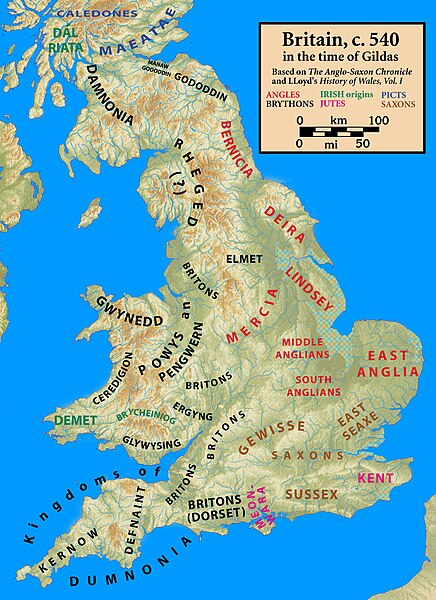The English people are an ethnic group and nation native to England, who speak the English language, a West Germanic language, and share a common ancestry, history, and culture. The English identity began with the Anglo-Saxons, when they were known as the Angelcynn, meaning race or tribe of the Angles. Their ethnonym is derived from the Angles, one of the Germanic peoples who migrated to Britain around the 5th century AD.
The Incipit to Matthew from the Book of Lindisfarne, an Insular masterpiece
A replica of the Sutton Hoo helmet
Æthelred II (c. 966 – 23 April 1016), known as 'the Unready', was King of the English from 978 to 1013 and again from 1014 until his death.
Battle of Hastings, 1066 (from the Bayeux Tapestry)
History of Anglo-Saxon England
Anglo-Saxon England or Early Medieval England, existing from the 5th to the 11th centuries from soon after the end of Roman Britain until the Norman Conquest in 1066, consisted of various Anglo-Saxon kingdoms until 927, when it was united as the Kingdom of England by King Æthelstan. It became part of the short-lived North Sea Empire of Cnut, a personal union between England, Denmark and Norway in the 11th century.
Britain around the year 540. Anglo-Saxon kingdoms' names are coloured red. Britonnic kingdoms' names are coloured black.
Escomb Church, a restored 7th-century Anglo-Saxon church. Church architecture and artefacts provide a useful source of historical information.
Whitby Abbey
The walled defence round a burgh. Alfred's capital, Winchester. Saxon and medieval work on Roman foundations.








